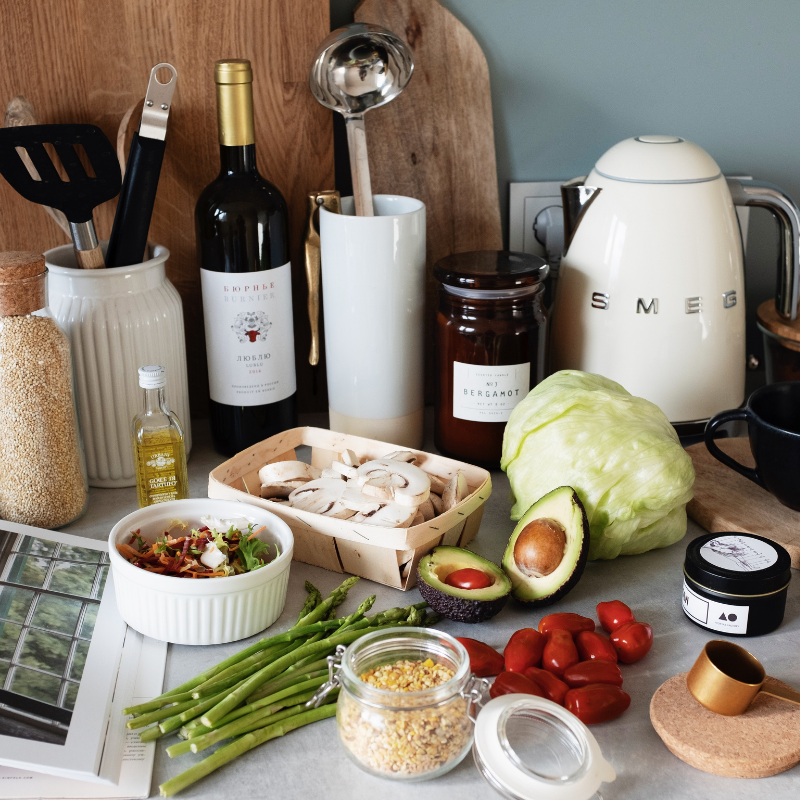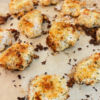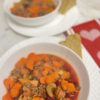
Let’s get into it!
We feel like histamine intolerance is becoming a lot more recognized and is a condition we work with frequently! When working with clients who present with classic symptoms of histamine overload, we have had great success given we address the root cause of histamine intolerance. This post dives deep into what histamines are, why histamine intolerance occurs, how it often presents, and how foods and nutrients play a role in the healing process.
WHAT IS HISTAMINE?
Histamine is a chemical released from our Mast cells (a key player in our immune response). Mast cells are found all over our body, particularly in our respiratory system, digestive tract, and even the central nervous system. Histamines are released by Mast cells in response to toxins, infections, or allergens. They play a critical role in helping our body communicate and are involved in the regulation of stomach acid which is necessary to break down food and help kill off unwanted pathogens we ingest in the stomach.
Histamine’s role in the body is to cause an immediate inflammatory response. It serves as a red flag in your immune system, notifying your body of any potential attackers. For example, have you ever suffered from seasonal allergies, and as soon as you take your medicine you feel fresh as new? Those are usually antihistamines, which are changing your histamine response (blocking your sensation of the histamines). Enzymes will typically break down histamine so that it doesn’t get overly high, but if we don’t break down histamine properly, it builds up and you develop histamine intolerance. Histamine travels throughout the bloodstream and can affect your gut, lungs, skin, brain, and entire cardiovascular system.
There are a variety of histamine intolerance symptoms, but the typical ones include the following:
- Headaches/Migraines
- Nasal Congestion or Sinus Issues
- Fatigue
- Rashes and hives
- Feeling flushed after meals
- Digestive issues (bloating, diarrhea, constipation, nausea, vomiting)
- Irregular Menstrual Cycle
- Abdominal Cramping
- Tissue Swelling and pain in joints/muscle
- Difficulty Regulating Body Temperature
- Dizziness
- Weight gain
- Overall feeling of puffiness and swelling
- Brain fog and difficulty concentrating
- Chronic anxiety and depression
- Feeling flushed after meals
WHAT CAN CAUSE HISTAMINE INTOLERANCE?
Figuring out WHY you have histamine intolerance is key to healing the body. There are a host of reasons why histamine intolerance develops ranging from something as simple as an enzyme deficiency to an issue in the regulation of Mast cells known as MCAS.
Common causes of histamine intolerance:
- DAO (diamine oxidase) enzyme deficiency – the enzyme that helps break down histamines
- Poor Methylation aka detoxification
- Gut dysbiosis (imbalance of gut bacteria)
- SIBO (small intestinal bacterial overgrowth) or Candida
- Leaky Gut
- Viruses and Parasites (H. pylori, Salmonella, and Lyme)
- Mold Exposure
- Metal Toxicity
- Food intolerance and/or malabsorption
- Chronic use of some medications (antidepressants, antibiotics, narcotic pain meds, anti-hypertensives, and over the counter drugs like NSAIDs)
- Hormone fluctuations (studies demonstrate that estrogen fluctuations can cause decreased DAO)
- Nutrient Deficiencies – Vitamin D, Zinc, and Magnesium may play a role
- Frequent consumption of histamine-rich foods
Notably, many of the above causes of histamine intolerance are related to the gut, and for a good reason! Did you know 70% of our immune system is centralized in the gut? This is why making sure your gut is healthy is optimal in healing intolerance!
In addition to the list above, there are certain factors that may contribute to and worsen symptoms as well: seasonal allergies, intense workouts (aerobic exercise can cause Mast cells to release histamine), too much fluoride in drinking water (this is one of many reasons why a good water filter is important!).
FOODS HIGH IN HISTAMINES
Unfortunately, histamines are rich in a bunch of foods. However, the good news is if you are experiencing histamine intolerance you will not have to avoid high histamine foods forever – it’s just a temporary part of the healing process!
High histamine foods:
- Fermented alcoholic beverages ( like wine, champagne and beer)
- Fermented foods (sauerkraut, vinegar, soy sauce, kefir, yogurt, kombucha)
- Vinegar-containing foods (pickles, mayonnaise, olives)
- Cured meats (bacon, salami, pepperoni, luncheon meats and hot dogs)
- Soured foods (sour cream, sour milk, buttermilk, soured bread)
- Dried fruit (apricots, prunes, dates, figs, raisins)
- Most citrus fruits
- Aged cheese including goat cheese
- Nuts (walnuts, cashews, and peanuts)
- Vegetables (avocados, eggplant, spinach, and tomatoes)
- Smoked fish and certain species of fish (mackerel, mahi-mahi, tuna, anchovies, sardines)
Notice how many of the above foods are packaged and processed consequently increasing the amount of histamines. In general when cutting back on high histamine foods, the fresher the better (hint: this goes with leftovers and meal-prepping too)!
Additionally, there are specific foods that are known to trigger histamine release into the body, and they include:
- Alcohol
- Bananas
- Chocolate
- Cow’s Milk
- Nuts
- Papaya
- Pineapple
- Shellfish
- Strawberries
- Tomatoes
- Wheat Germ
- Many artificial preservatives and dyes
Foods and Nutrients that may help support the body heal
We get it, food can seem like the enemy right about now. However, we can assure you that food is still essential in nourishing your body to help it heal! There are a handful of supplements we like to help support the body when recovering from histamine intolerance:
- B complex vitamins
- Magnesium (glycinate and threonate tend to be best)
- Vitamin C with bioflavonoids or liposomal Vitamin C
- DAO enzymes
- Quercetin
- Histamine friendly-probiotic (seeking health makes one we LOVE)
- Turmeric
- Nettle Leaf Te
As per usual, our disclaimer here is that these supplements are not to be taken by just anyone and should be done under the advice of a health professional!
OUR APPROACH TO HEALING HISTAMINE INTOLERANCE
I may sound like a broken record at this point, but getting to the root cause of your histamine intolerance is key. We work with clients to determine the root cause and may utilize testing like stool testing which gives us an inside look of what is going on in the gut or a blood test to have DAO levels checked (A high ratio of histamine to DAO illustrates that you are ingesting too much histamine and that you don’t have enough DAO to break it down. If this is the case, there is supplementation that can help!). The next steps vary from person to person. However, we will typically layer in certain foods, nutrients, and supplements to address this root cause. Throughout this process, we will often recommend clients follow a low-histamine diet. During this clients will eliminate high-histamine foods. Then, we have clients reintroduce foods one by one to see which ones are triggering symptoms.
This can seem like a lot and a bit overwhelming, I know. I work with my patients every step of the way to make this transition as easy and attainable as possible, in hopes of decreasing or eliminating their symptoms. A low histamine diet can be challenging at first when trying to remember all of the foods to limit and adjust how you’re prepping and cooking your meals. If you’re new to a low-histamine diet and are trying to give it a go, we have a list of low-histamine recipes here.
THE BOTTOM LINE
Histamine intolerance can happen for a variety of reasons. Once the underlying reason is discovered, a low-histamine diet alongside supplements and lifestyle recommendations should be utilized to help the body heal.
If you think you may have histamine intolerance or are currently experiencing any of these symptoms, reach out, and let’s have a chat!







